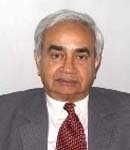Pakistan Elections 2013: Will things change?
22 Apr, 2013 · 3890
PR Chari discusses whether the elections will augur a paradigm shift in terms of good governance
A week, Harold Wilson once famously said, is a long time in politics. May 11, when the next Pakistani general elections are scheduled, is three weeks away, but speculation about what will happen is rife amongst the concerned elite in Pakistan and India.
There is general wonderment in India and elsewhere that the Zardari government has lasted its full five-year term despite its many travails. On the socio-political front, its most serious problem has been the planned attacks on Pakistan’s minority population, especially Shias, opposition leaders and, now, polio vaccinators. Promoting liberal views in Pakistan provides fair game for its extremist groups, who may lack electoral support, but have no dearth of street and goonda power. The economic front should cause even greater concern to Islamabad with annual growth averaging less than 3 percent over the last three years, which is somewhat less than its population growth over this period. Inflation, however, was around 11 per cent, with power shortages crippling Pakistan’s fledgling manufacturing sector. The result is growing unemployment and frustration in Pakistan’s younger generation, not unlike the situation obtaining in many parts of the Arab world.
This depressing scenario furnishes the backdrop for the upcoming elections in Pakistan. There is some speculation in India on whether the elections will be free and fair, and the short answer is “Yes, within reason.” But, there might be allegations of defective electoral lists, booth capturing, voters being either bribed or intimidated and so on, which is par for the course in South Asian elections. The question is one of scale, and one can safely prognosticate that electoral malpractices will not be of much significance in the Pakistani elections, especially with a caretaker government overseeing the process.
There is natural curiosity regarding the political parties and personalities in the fray, and who shall win. Here, we must concur with the general belief that the main contest lies between the Pakistan People’s Party led by Zardari (father and son) and the Pakistan Muslim League (N) led by the Sharif brothers. Both are cadre-based parties and enjoy firm bases in rural Sindh and Punjab respectively. The PPP, however, suffers from the liability of incumbency, while the PML (N) faces a strong PPP challenge within its secure base in south Punjab. Important ‘others’ in the electoral battle are the Pakistan Tehrik-e-Insaaf (Imran Khan), Awami National Party (Wali Khan), and Mohajir Qaumi Movement (Altaf Hussain). The religious parties (JEI, JUI) have vociferously agitated sectarian issues in Pakistan, but are yet to demonstrate their ability to translate religious fervor into electoral seats. In this milieu, Musharraf’s homecoming has become a non-event with his house arrest; it did not arouse any support for his All Pakistan Muslim League or the Pakistan Muslim League (Q), which was the King’s party during his regime.
Consequently, there is fair consensus that the smaller regional and sectarian parties cannot achieve power on their own, but must link their fortunes with either the PPP or the PML (N), which will happen after the seats won by the different political parties emerges after the elections. The question of present relevance is how the ‘others’ might erode the electoral support base of the PPP and PML (N) in various parts of Pakistan, and how this will impact on the two major parties. Naturally, the situation remains quite fluid and uncertain at the moment.
A question of huge significance for India is the likely role of the Pakistan Army, which is the dominant force in Pakistan. The PPP had subordinated its policies to the Pakistan Army in vital areas like relations with India, Kashmir issue, nuclear weapons and the defense budget. Hence, there is no reason to believe that the Army would choose to dislodge the PPP from office, since it has proven its pliancy. Does this also hold true of the PML-N? Nawaz Sharif’s anathema towards General Musharraf is well known, but there is no reason to believe that he would choose a confrontation with General Kayani. The odds, therefore, are that both the PPP and the PML-Q would be perfectly willing to let the present arrangements continue after the elections, with the Pakistan army remaining the Praetorian Guard behind the civilian government. In other words, they would be content to function in subordination to the Pakistan army on issues of interest to the latter.
Finally, the resemblance between the electoral scene in Pakistan and India is worth flagging. A polarisation of political parties around two nodes - UPA/NDA - has occurred in India. They have revealed their preference also for dynastic succession - prominently, Rahul Gandhi in India and Bilawal Bhutto in Pakistan. Political parties in both countries are perfectly capable of using the sectarian card, while speaking of lofty secular principles. And, in both countries, corruption and mis-governance are hardly major electoral issues; so, at the end of the day, we shall only be witnessing “ great sound and fury, signifying nothing.”
To follow the rest of the debate, click:
• PR Chari, IPCS Commentary #3890
• Rana Banerji, IPCS Commentary #3851
• D. Suba Chandran, IPCS Commentary, #3869
• Zainab Akhter, IPCS Commentary, #3898
• Sushant Sareen, IPCS Audio Commentary
• Rana Banerji, IPCS Audion Commentary


